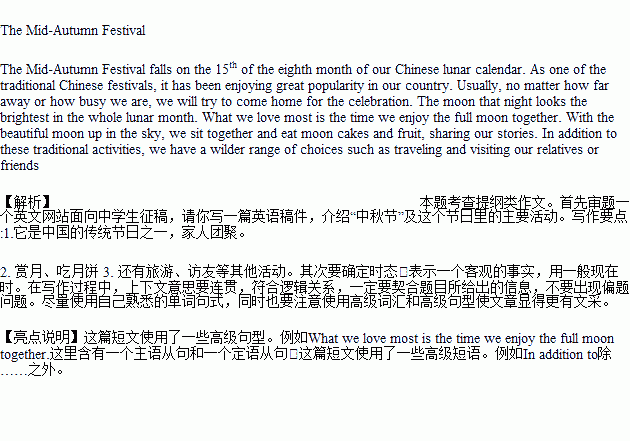题目内容
一个英文网站面向中学生征稿,请你写一篇英语稿件,介绍“中秋节”及这个节日里的主要活动。
写作要点:1.它是中国的传统节日之一,家人团聚。
2. 赏月、吃月饼 3. 还有旅游、访友等其他活动。
注意: 1. 词数100左右 2. 可适当增加细节,以使行文连贯 3. 开头已给出,不计入总词数。
参考词汇:中秋节the Mid-Autumn Festival 农历lunar calendar赏月enjoy the full moon 月饼 moon cake
The Mid-Autumn Festival
The Mid-Autumn Festival falls on the 15th of the eighth month of our Chinese lunar calendar
________________________________________________________________________________________________________________________________________________________________________________________________________________________________________________________________________________________________________________________________________________________________________________________________________________________________________________________________________________________________________________________________________________________________
 天天向上一本好卷系列答案
天天向上一本好卷系列答案 小学生10分钟应用题系列答案
小学生10分钟应用题系列答案
